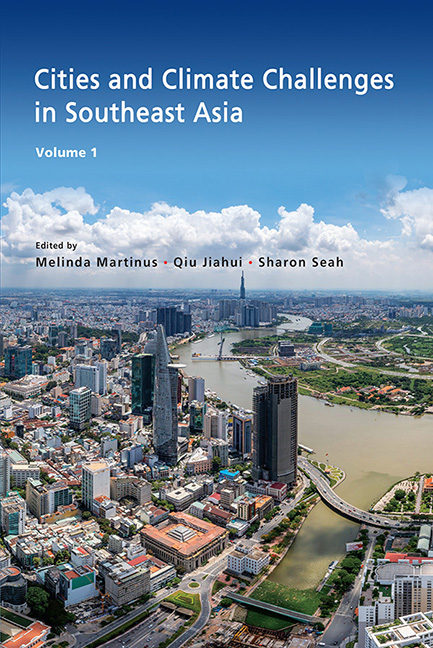7 - The Role of International City Networks in Advancing Cities’ Climate Ambitions: A Case Study of Jakarta
Published online by Cambridge University Press: 09 January 2024
Summary
Summary:
■ Global climate governance is shifting from a state-centric to polycentric mode. Cities and city networks play a central role in polycentric climate governance.
■ Cities and city networks cooperate in a symbiotic relationship in pursuing climate goals.
■ This study highlights that Jakarta directly benefits from its cooperation with the C40 Climate Leadership Group (C40), the International Council for Local Environmental Initiatives (ICLEI) and CityNet. At the same time, these city networks’ subsistence and relevance depend on their roles in fostering collaboration.
■ The question remains on how this cooperation can effectively assist the Government of Jakarta to achieve its climate change mitigation and adaptation targets and develop a more robust and effective climate action policy in the future.
INTRODUCTION
For decades, states were seen as the main actors in the concerted global effort to tackle climate change (Kern and Mol 2013). Countries engaged in multilateral forums such as the UN Framework Convention on Climate Change, the UN Environmental Program (UNEP) or the Group of 20 (G20) at the international level. Countries also participate in regional organizations such as the Economic and Social Commission for Asia and the Pacific (UNESCAP), the Economic and Social Commission for Latin America and the Caribbean (ECLAC), the African Union, or the Association of Southeast Asian Nations (ASEAN) at the regional level. However, scholars argued that state-centric and prolonged negotiation processes yield only incremental progress, if at all. Under the climate negotiation process, decisions were agreed upon at a slow pace (Hovi and Skodvin 2017; Downie 2012; Falkner et al. 2010); mistrust and contested issues exist, for example on differentiated responsibilities and capabilities between developed and developing countries (Dubash 2009; Wang and Gao 2018), and lack of legally binding and accountability mechanism lead to less ambitious commitment by countries (Hovi et al. 2016; Gupta et al. 2021).
Under the Paris Agreement, the climate regime has applied a combination of top-down and bottom-up systems based on participating country’s national and sectoral initiatives. The initiatives are translated to mitigation and adaptation measures adopted and implemented by networks of international, regional, national, and subnational public and private actors (Jordan et al. 2018; van der Heijden 2018).
- Type
- Chapter
- Information
- Cities and Climate Challenges in Southeast Asia , pp. 92 - 105Publisher: ISEAS–Yusof Ishak InstitutePrint publication year: 2023

